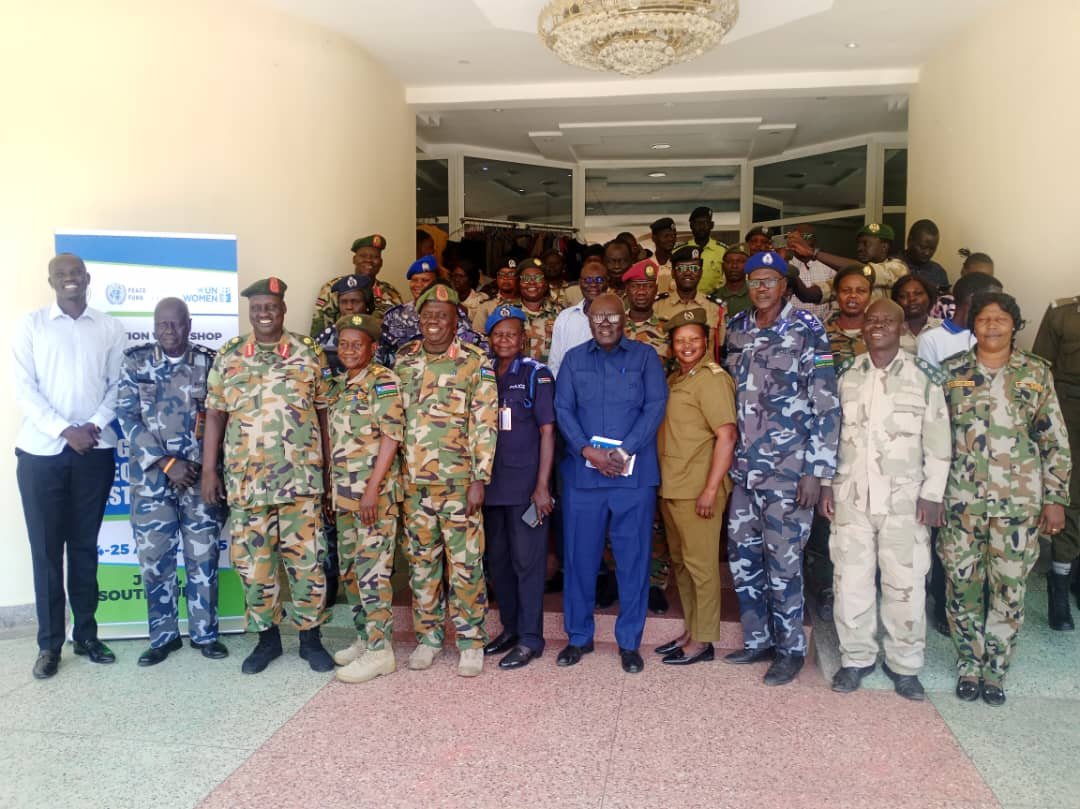By William Madouk
In a determined effort to turn the conversation about gender equality into tangible change, Hope Africa South Sudan (HASS), a national non-profit organization, has initiated a groundbreaking campaign aimed at empowering women in uniform and addressing gender disparities across the country’s security sector.
The initiative took shape through a two-day validation workshop that brought together both male and female officers from various organized forces. The event focused on reviewing research findings and formulating policy recommendations to dismantle the systemic biases holding women and girls back, especially within the security services.
Major General Awour Awer Malual, commander of the Nyanchigak Military Academy, praised the workshop as a critical learning experience.
“The workshop is very educational. It has opened our eyes to the challenges faced by women in uniform,” he said. “Many have been stuck in the same rank for over a decade, and even their uniforms are not tailored to their needs. Their concerns are often overlooked.”
He highlighted unequal promotion opportunities and inadequate maternity leave as key concerns.
“Some women haven’t been promoted for 10 to 20 years. And maternity leave—just 45 days—is not enough. We should include men too, because both parents are responsible for the child.”
Colonel Harriet Fozia Jinaba, an SSPDF officer and Executive Director of the South Sudan Women Security Sector Network, echoed the call for inclusive maternity policies.
“Maternity leave should involve both parents,” she said. “And after that, we need childcare facilities across all security units, so women can return to work knowing their children are safe.”
Brigadier General James Dak Karlo, Director of the Special Protection Unit and Child Affairs in the national police, emphasized the need for more female investigators.
“International norms demand that gender-based cases be handled by investigators of the same gender. That’s why we are focusing on training and empowering female officers,” he said.
Chol Samuel, Head of Programs at Hope Africa South Sudan, said the workshop aimed to validate findings from recent research and to transform those insights into actionable policies.
“One of the key issues identified is the lack of women in leadership within the security sector,” he said. “We need to empower women so they can rise to leadership positions and help shape the future of this country.”
Chol emphasized that gender equality is essential for national development.
“Men and women are like the two wings of a bird. If one wing is weak, the bird can’t fly,” he noted.
He added that a final validation session would soon be held to finalize findings and set the stage for policy implementation.
Asked why the focus was on women, Chol responded, “We live in a patriarchal society where most laws and traditions favor men. Women deserve equal opportunities to lead and contribute to building this nation.”
HASS and its partners are now urging institutions to support gender equality from within, empowering women to take on leadership roles and advocate for the changes South Sudan urgently needs.



